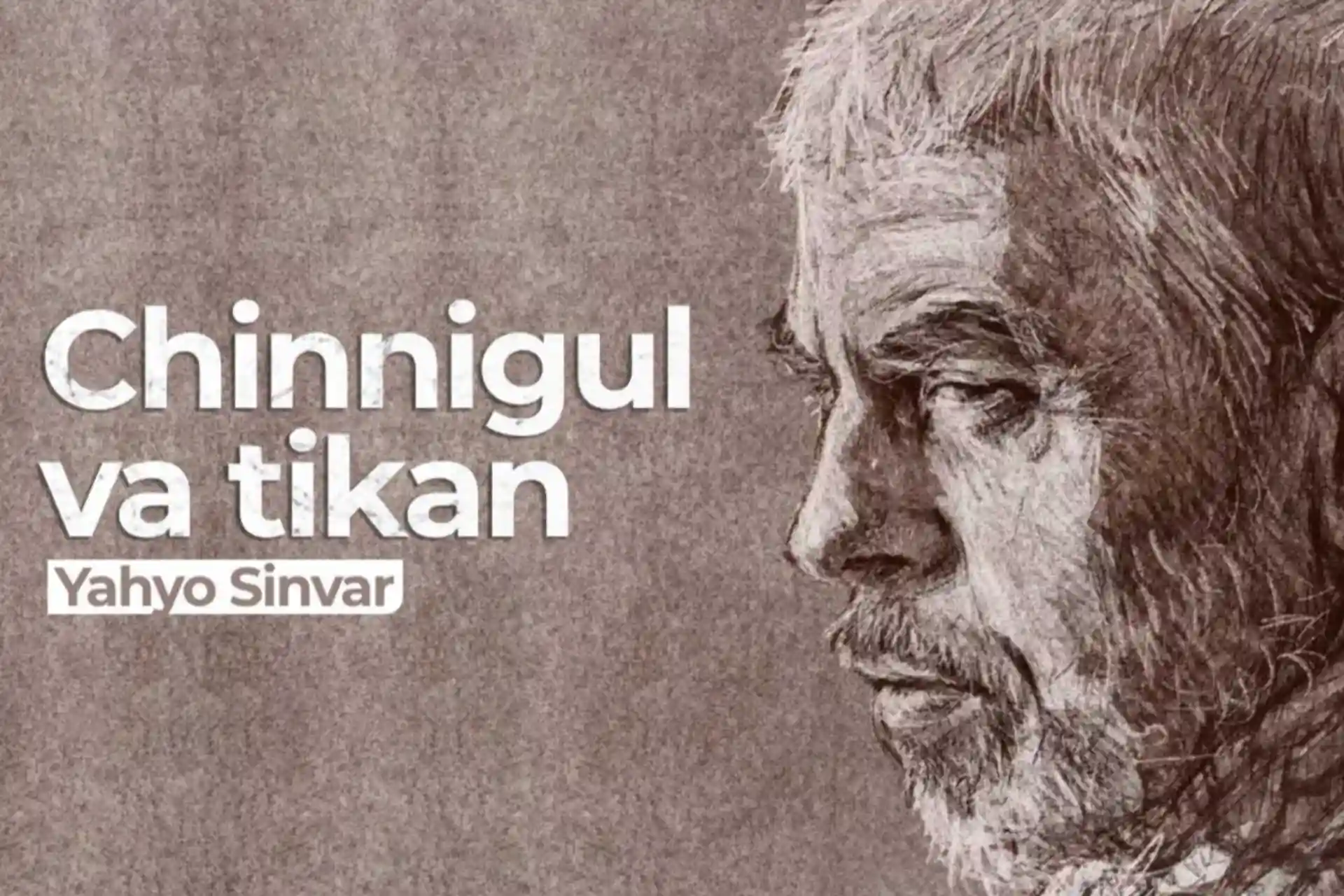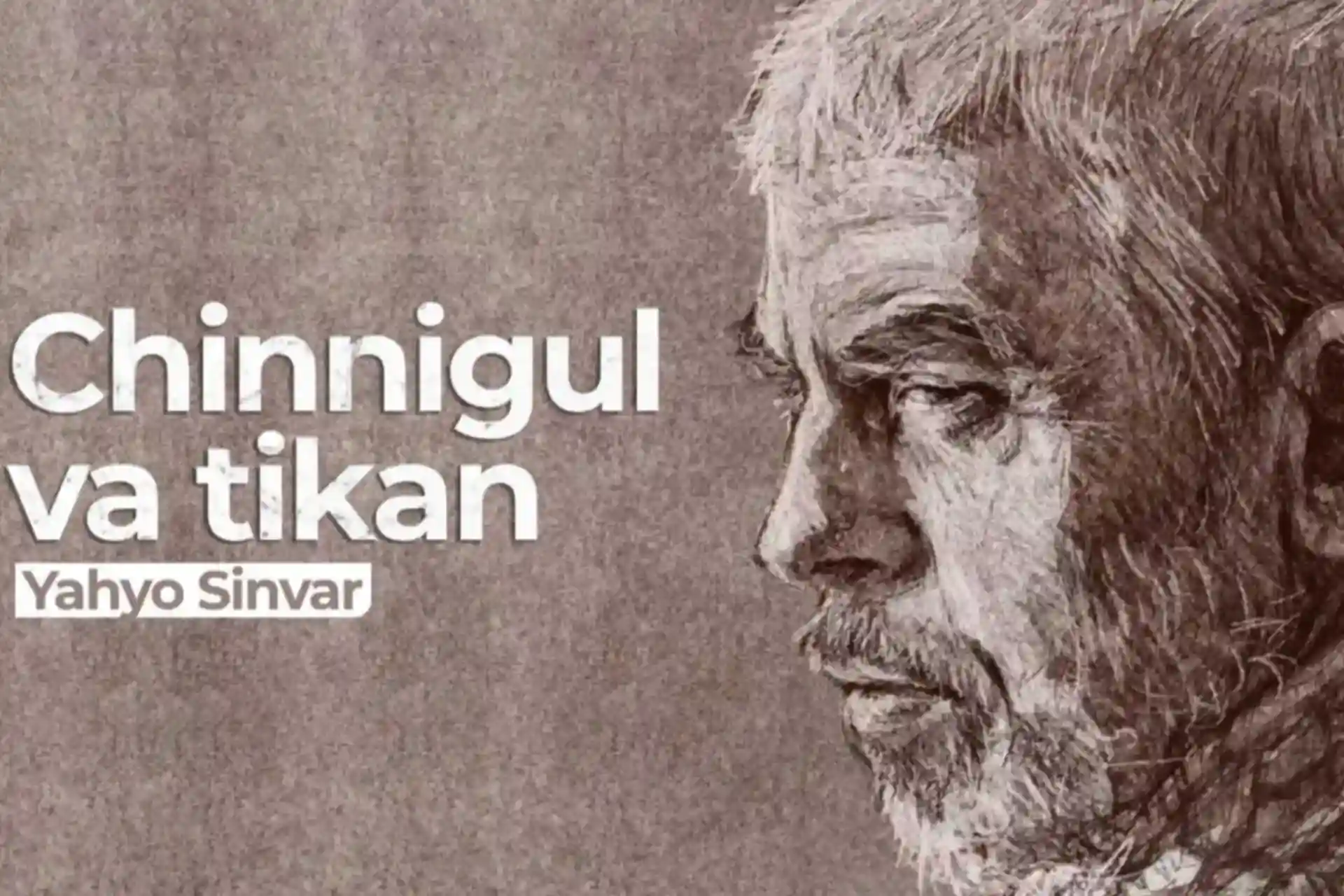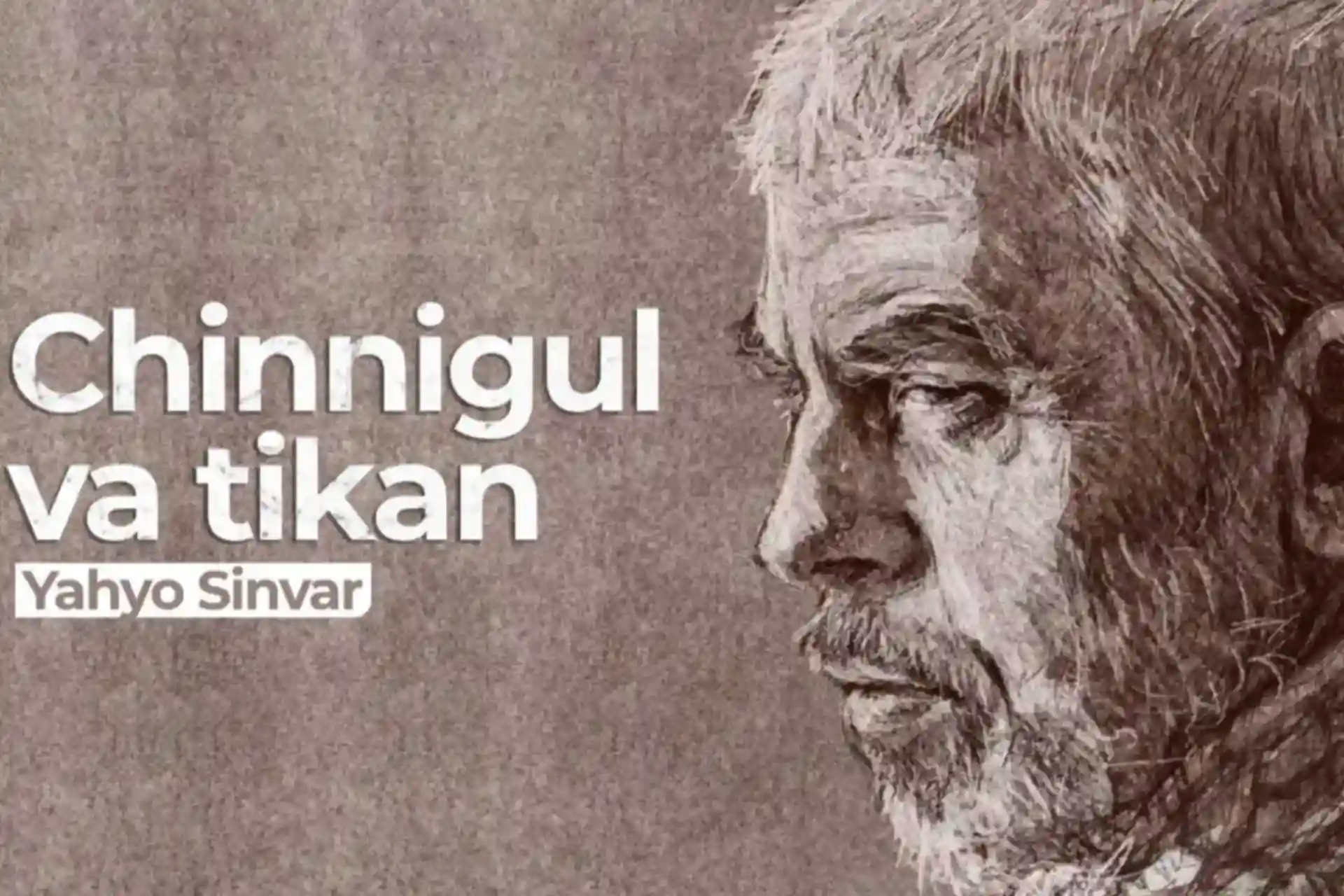13.04.2025 09:10
1790
"The Carnation and the Thorn" – Yahya Sinwar (story, part 42)
I studied at the Karmul School. During my studies, an Islamic group led by my cousin Ibrahim organized trips to Jerusalem and a number of tourist areas in Palestine. Those who wanted to go could go and register and pay a fee. One of the group's activists invited me to go on this trip. I hesitated, said I would think about it for a while and then respond. At home, Ibrahim also brought up the subject again. He said that I should not miss the opportunity, but go and register immediately. Otherwise, he said that I would miss the opportunity to get out of Gaza, visit the West Bank, Jerusalem, and the occupied territories and get to know our country. Seeing that I was thinking, Ibrahim said:
"If you're thinking about paying, I'll pay myself. Just don't say no," he said.
I smiled and explained that it wasn't about the ransom. What I couldn't say was that I would be cautious about such trips, and certainly not about avoiding the ransom. Anyway, Ibrahim, with difficulty, got my consent. I promised to go with them.
So, the next day, I went and paid the travel expenses to the person in charge of the trip. On Friday morning, we prepared for the trip. We gathered in front of the school gate. Everyone had brought enough food for two days. I knew for sure that Ibrahim would lead this trip. Yes, I was right. As we got on the bus, Ibrahim began the prayer that is recited before the trip. We followed the others:
God bless you. الحمد لله الدهي سخر لنا حدا و ما كنا له مقرنين و ذنا لہ ربنا لمنقلبون. God bless you
Whenever we pass by a part of a village or a historical monument, or pass through Palestinian cities that have been destroyed in war or where Jews have destroyed monuments belonging to Arabs, Ibrahim or his companion will stop and say:
"These are historical monuments of the city of Ashkelon. This old tree is located in the center of the village of Hamamah. Here are the remains of the "Lions Alley" mosque. There used to be a school in the distance. There were houses on this side," they would comment and introduce.
Our first stop was a beautiful desert. There was also a Christian church there. We got off the bus there. Now that place is called "Dayr Latrun". Ibrahim explained that the "Amwas" ceremony was held here on the way to the conquest of Palestine under the leadership of Abu Ubayda Amr ibn Jarrah.
As Ibrahim recounted some of the details of the ceremony, he bent down and picked up a handful of the reddish sand of the desert:
"This sand bears witness to the blood of the Messenger of Allah's companions," he said, his eyes filling with tears.
At this moment, silence reigned among the listeners, except for the sound of the distant tree shaking its leaves in the breeze and the sound of a bird chirping on a branch. Ibrahim continued:
"This land is our land. This land is our land. The pure blood of the companions of the Prophet was shed for this. Now, for these lands to be free again, the pure blood of those who followed the Prophet will be needed."
A shiver ran through my body. The words I heard shook my body. In particular, listening to these words at home - in front of my mother - from Ibrahim, who was deaf and mute, doubled my excitement. No matter where we stop, Ibrahim had extensive knowledge about those lands. He spoke eloquently and beautifully. As I followed him, my strong respect for him grew even more.
The bus moved off again. We covered a treacherous distance. Ibrahim's partner pointed to the foot of the mountain:
"The village of Dar-Yasin is located at the foot of this mountain," he said.
There, he talked about how the occupiers were friendly to the world, and how this village became a symbol of the atrocities committed by the Jews against the Palestinian people. After a while, we reached Jerusalem. After walking a little more, the walls of the Al-Aqsa Mosque came into view. Around it, the ancient city of Jerusalem appeared. We entered this ancient city on foot. Both sides of the road were occupied by commercial shops. They had nothing they didn't have.
A variety of souvenirs are being sold on the streets of Jerusalem, which tourists take as souvenirs. Tourists come from all over the world. On every corner, you can see the occupying soldiers standing with their weapons, watching with their eyes. They are special forces deployed to guard the area.
We approached one of the gates of the Aqsa Mosque. In particular, a whole army was standing in front of these gates, carefully searching each pilgrim and checking their documents. Sometimes they wrote down the number on the document of some. As they took our document numbers, one of the sheikhs began to be heard reciting verses from the Quran into a microphone. The Dome of the Rock spread its radiant color to the world, pouring glory on the hill that was climbed by stone steps.
I entered the mosque with my slippers in my hand. A sense of awe and intense excitement stabbed me like daggers. After praying two rak'ahs of the Tahiyyatul Masjid prayer, we waited for the imam of the mosque to deliver the Friday sermon. When the imam ascended the pulpit and delivered the sermon, I did not notice any new words or style that was different from what he had done in Gaza. After the Friday prayer, people began to disperse from the mosque in all directions. We regrouped and went up to the Dome of the Rock.
Ibrahim spoke about this mosque. The Messenger of Allah (peace and blessings of Allah be upon him) spoke with excitement about the stone that was lifted into the sky on the night of "Isra and Miraj", and about the journey of "Isra" and "Miraj" from Mecca to Jerusalem, and then from Jerusalem to Sidratul Muntaha. In between his words:
"Jerusalem was the main stop on Earth on the way to heaven," he recalled.
The Prophet (peace and blessings of Allah be upon him) could have ascended to heaven from Mecca. However, in the wisdom of Allah, the Almighty, the purpose was to show Muslims the importance of Jerusalem in their religion and beliefs.
Ibrahim said several times during his speech:
"The Messenger of Allah ascended to heaven from here - from Jerusalem," he repeated.
My body shivered and trembled. It was not difficult to realize that many people felt the same way as I did. We - the people of the Gaza camp - were visiting Jerusalem for the first time. Before, we had only known its name in our minds. Now we were standing on this holy ground. We were breathing its air. Our eyes were enjoying the real view, not the picture.
But, but... This holy land is occupied by invaders who surround it from all sides, who let in whoever they want and who they want to. Arabs and Muslims, with their millions of people, armies, and wealth, are powerless to free the holy land from these accursed scoundrels.
From that moment on, we understood that there was another aspect of the struggle that we had not previously realized. The issue was not simply a matter of land and people. It was not even a matter of returning a people who had been expelled from their land to their homeland. It was a matter of religion, belief, history, and the essence of existence. Ibrahim and the organizers of this journey managed to firmly embed these meanings in our hearts.
I was drowning in the bottomless ocean of these thoughts when suddenly I heard Ibrahim's loud voice:
"Now we're going back to the bus. Take heart. Our next stop is the city of Khalil. There we'll visit the Temple of Abraham."
I came to my senses. We slowly started walking outside. Each step was as heavy as pulling up a tree root. The influence of this sacred place is so strong that anyone who visits it does not want to leave.
As I was getting on the bus, I remembered what Ibrahim had said about Saladin: "He built a pulpit to inspire the liberation of Jerusalem from the Crusaders. The Jews burned it down in 1968." I asked myself, inwardly:
"Is there another Saladin for freedom this time?"
To be continued...



